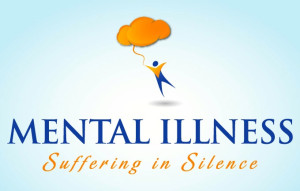Demand for mental health care grows in Tahoe
Publisher’s note: This is one of several stories about mental health issues in the Lake Tahoe Basin that will be running through October.
By Kathryn Reed
Mental health is a growing problem on the South Shore that is affecting all ages and has no socio-economic boundaries.
More people are committing suicide. Substance abuse is an issue, which exacerbates mental conditions.
 These are some of the findings in Barton Health’s latest Community Needs Assessment. Officials from the Tahoe healthcare conglomerate spoke to the South Lake Tahoe City Council this month – which is Mental Health Awareness Month. A different foursome – three from Barton, one from NAMI (National Alliance on Mental Health) – gave a talk a few days earlier at Lake Tahoe Community College.
These are some of the findings in Barton Health’s latest Community Needs Assessment. Officials from the Tahoe healthcare conglomerate spoke to the South Lake Tahoe City Council this month – which is Mental Health Awareness Month. A different foursome – three from Barton, one from NAMI (National Alliance on Mental Health) – gave a talk a few days earlier at Lake Tahoe Community College.
“We see worsening trends,” Clint Purvance, CEO of Barton Health, said.
The top three priorities from the 2015 assessment are mental health, substance abuse and access to services. All are interrelated.
South Lake Tahoe has a higher rate of suicides compared to the state and national averages, as well as more drinkers and drug-induced deaths. The access to primary care physicians, though, is less than the state and national averages.
Barton is going after grants to help implement programs to help address these issues.
What worries Purvance is that there are so many outside factors contributing to one’s mental health that are out of the immediate purview of Barton, such as homelessness among school-age youth and adults living in motels.
When Councilman Tom Davis asked Purvance to put a price on dealing with the issue on a communitywide basis, the answer was at least seven figures with no true number having been calculated.
For Barton, the next steps are to maintain and expand mental health services, spearhead community collaboration and engagement to improve the care flow system, and to build awareness through education and prevention campaigns.
At the community talk Tracy Protell – psychiatrist at Barton; Betsy Glass, licensed clinical social worker at Barton Community Health Center; Kate Mosher, licensed clinical social worker with Sierra Child and Family Services; and Jeanne Nelson of NAMI El Dorado gave some insight about they see in the community, particularly regarding depression.
“The key is all levels are treatable. You really can get the brain back to a healthy state,” Protell said.
She said depression is often misdiagnosed in younger people as attitudinal behavior issues.
A clinical diagnosis of depression is when someone has five of the following nine symptoms for more than two weeks:
· Sadness/irritability
· Anhedonia
· Sleep disturbance
· Decreased energy
· Appetite disturbance
· Difficulty with concentration
· Excessive feelings of guilt-worthlessness
· Psychomotor agitation/retardation
· Suicidal thoughts.
The experts are proponents of starting with lifestyle changes – eating, sleeping, exercise, social interaction – before medication.
Therapy, though, is also a viable option for many people. However, there is an extensive wait list for psychiatric and psychotherapy through Barton. The good news is new patients are prioritized, with the most severe cases rising to the top.
A third psychiatrist is coming on board with Barton this summer, which should help.
Money can also be a deterrent for people when it comes to seeking care.
NAMI offers some free group therapy sessions and has a wealth of information. El Dorado County operates a 24-hour crisis line. A therapist will meet patients at Barton Hospital’s emergency room.



Great article. The issue is critical with not nearly the resources needed.
Do any of the demanders want to pay for the services themselves? Let me guess. No, they want others (like taxpayers) to come up with the money to feed the psych
establishment.
Demanders? I believe they are community members that need some help. Some can pay other can’t. I think it’s a priority,